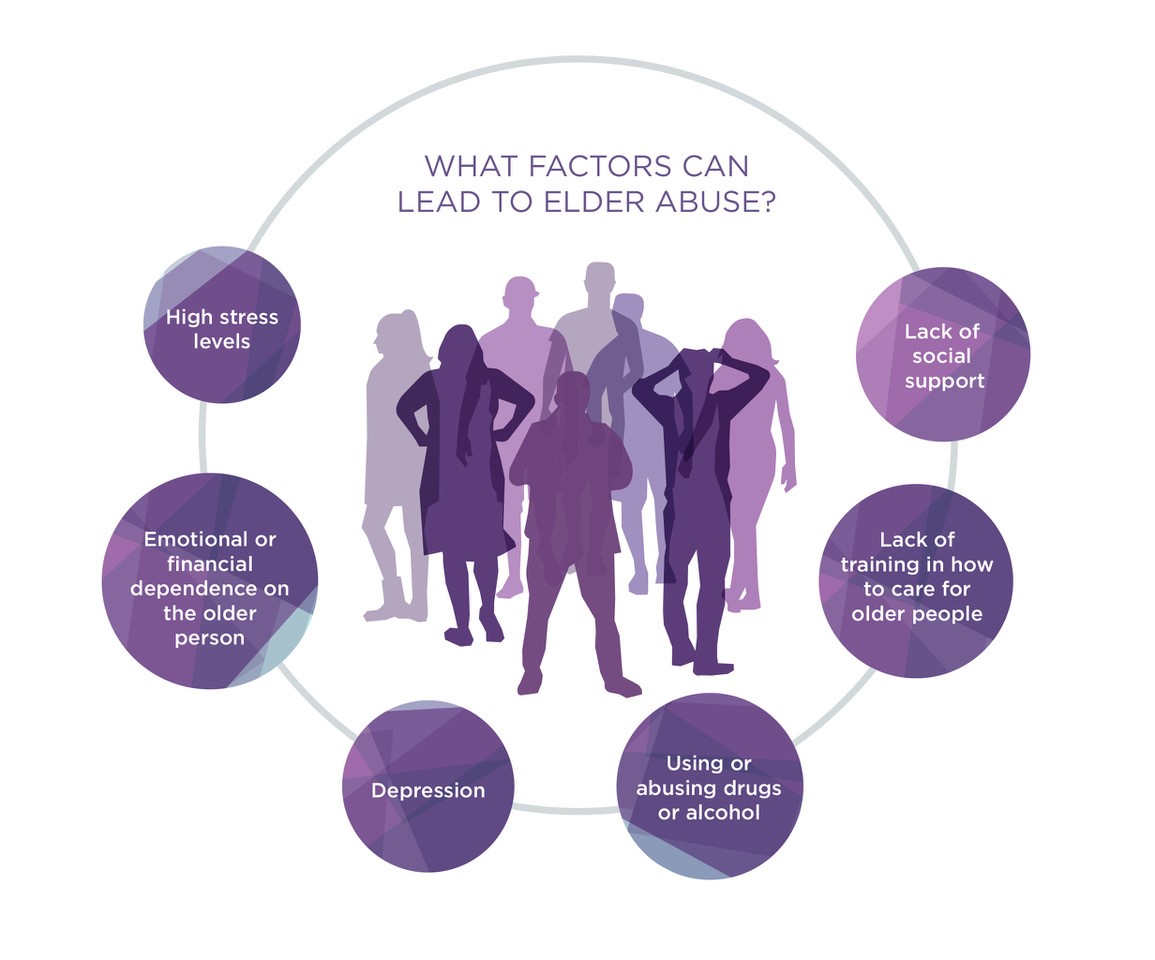There is no single and simple answer to this question. Many factors seem to contribute to abuse and each case has its own unique mix of factors.

Abusive style of interaction
In some families, the members have a way of relating to each other that is generally hostile and non-nurturing. The adult children may have been abused by their parents, and having learned to interact in such a manner, carry it on into the next generation. Or there may be some unresolved family conflicts which foster abuse. The family may have a history of wife abuse which carries on into old age. Or in some cases, the roles may become reversed if the former abusing partner becomes incapacitated and his wife seizes the opportunity to retaliate.
Dependency
In some cases, the elderly person becomes dependent to some degree on family members for assistance. Such dependency can tax the resources, both material and psychological, of family members and set the stage for abuse.
Conversely, some persons who abuse are in some way dependent on the persons they are abusing. The most common cases are those in which a son or daughter is dependent on an elderly parent for shelter and/or finances.
Stress
Stress caused by too many demands and too few resources can contribute to abuse. This stress can be slow to build and the caregiver may not recognize what is occurring until it is too late. There are many resources available to combat this stress.
Addictions (Alcohol/Drugs/Gambling)
Any form of addiction can lead to the break-down of a person’s ability to cope and function appropriately. These addictions can often lead to the financial, psychological and physical abuse of others.
According to Charmaine Spencer of Simon Fraser University “a study examining elder abuse case files from agencies across Canada found that severe drinking bouts by the abuser lead up to the abuse in 14.6% of the cases. In another 18.7% of the client records, the clients indicated that the abuse was secondary to alcoholism.”
Problem gambling can also make life very difficult. It may be a senior themselves who is gambling away money that is necessary for their own well-being, or it may be a family member that is illegally accessing funds to feed their addiction.
Ageism / Lack of Knowledge
Ageism is a prejudicial view of older adults. Whether intentional or not, abuse may occur as a result of ignorance surrounding the aging process and the needs of elderly people. Abuse and Neglect can result from the false negative stereotype of older adults having no useful role, combined with non-acceptance of the increasing dependence that can accompany old age.